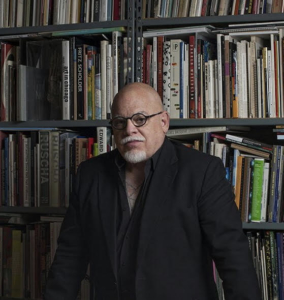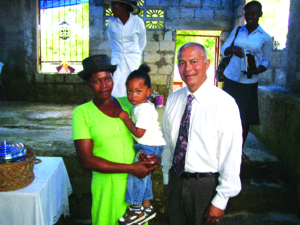Family: SOU’s connection with former Hawai’i mayor
Southern Oregon University played a big part in the family of former Hawai’i County Mayor Harry Kim, who received his bachelor’s degree in 1966 and master’s degree in 1967. He met his wife, Roberta, while he was an undergraduate, and one of his sons also graduated from the university and met his future partner there.
“SOU is a family thing,” Kim said. “It’s been with us and connected us with people we love.”
Kim grew up in Hilo on the Big Island of Hawai’i, and served as an Army medic. His first trip to the mainland didn’t occur until after he was honorably discharged from the Army in the 1960s. When he landed in Medford to attend what was then Southern Oregon College, Kim was a bit stunned.
“I remember, it was January 11, 1964,” he said. “Medford was dark and foggy, and I was wearing the wrong clothes for the weather. I thought to myself, ‘what the hell am I doing here?’”
It did not take long, however, for his impression of Oregon to change. After meeting the staff and some faculty members, Kim knew he was in the right place.
“There was so much kindness and support,” he said. “I didn’t doubt that I belonged there.”
Kim was the youngest of eight children from Korean-American immigrants in Hawai´i.
“Like many immigrants who came to the island in the early 1900s, my father worked for a sugar plantation, and life was hard,” he said.
From a young age, Kim got used to waking early and working long days – habits he has kept throughout his life. The family lived in a one-bedroom house with no electricity or running water.
“People in our community knew the value of working together and supporting one another,” Kim said. “Families helped each other in order to make things better. SOC was like that, too. People were there for you.”
Kim said the relationships he formed in college were a constant reminder of what is truly important in life.
“I always tell young people not to place the value of yourself on material things,” he said. “Measure your life by the people you love and the people who love you.
“I learned that as a child, and I saw people model it at SOC all the time. There was a totality of niceness, both on campus and around town.”
Kim knew he wanted a career in which he could help people, and his time at SOC helped him find the path.
“SOC opened my eyes to a lot about the world,” Kim said. “I learned so much outside of textbooks. I remember learning about the hardships people faced in other countries and how America helped them or allowed them to make it their home.”
He decided in college that he wanted to improve people’s lives through his work.
Kim graduated with a bachelor’s degree in education and sociology in 1966. He continued his studies and earned a master’s degree in economics the following year. He returned to Hawai´i and became a high school teacher, counselor and football coach.
He later worked as a civil defense administrator for the county government. Kim didn’t expect to still be serving the people of Hawai´i some 20 years later, when he was first elected mayor in 2000. He served from 2000 to 2008, then served a third four-year term from 2016 to 2020. He lost his race for a fourth term last summer.
As mayor, he advocated for education and economic development and worked to mitigate the county’s homeless issues. Among the biggest challenges, however, came after the devastating Kilauea Volcano eruptions in 2018. Then 78 years old, Kim was determined to help citizens recover from the disaster, and he kept a heavy work schedule despite being hospitalized twice for heart problems and pneumonia. Kim was awarded a prestigious Homeland Heroes award for his efforts to keep the people of Hawai´i County safe.
Kim was awarded the SOU’s Stan Smith Alumni Service Award in 2019. He said that when reflecting on the university and its impact on his life, he often remembers a teacher who reminded him of the importance of listening.
“He’d say, ‘Good grades don’t make you a good student – opening up your mind makes you a good student,’” Kim said. “Learning isn’t just memorizing facts, it’s being able to listen to others and being open to new information. So, I try to always be open. And to listen.”
Shared from the Fall 2019 issue of The Raider, SOU’s alumni magazine










 “I thoroughly enjoyed my time at SOC,” Van Delden said. “The professors were very helpful, I made a lot of friends and I loved soccer.”
“I thoroughly enjoyed my time at SOC,” Van Delden said. “The professors were very helpful, I made a lot of friends and I loved soccer.”
